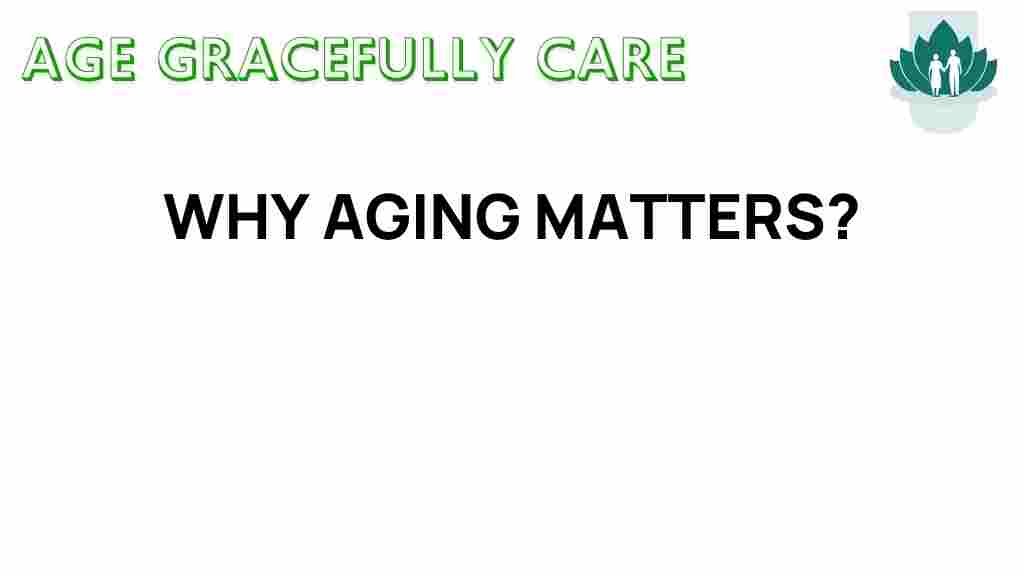The Intriguing Science Behind Why Aging Matters
Aging is a universal experience, yet its implications stretch far beyond the mere passage of time. With advances in cellular biology, our understanding of aging and longevity is evolving, highlighting the critical importance of health and wellness throughout our lives. In this article, we will delve into the fascinating science of aging, explore the lifestyle choices that can enhance our longevity, and discuss the role of mindfulness and resilience in the aging process.
Understanding Aging: The Cellular Biology Perspective
Aging is primarily a biological process characterized by the gradual decline in cellular function over time. This decline is influenced by a myriad of factors including genetics, environmental exposures, and lifestyle choices. Here are some key concepts in cellular biology related to aging:
- Telomeres: These are protective caps on the ends of chromosomes that shorten as cells divide. When they become too short, cells can no longer divide, leading to aging at the cellular level.
- Oxidative Stress: The accumulation of free radicals can damage cells and accelerate aging. Antioxidants help combat this stress.
- Cellular Senescence: This process refers to the state where cells stop dividing and can contribute to inflammation and age-related diseases.
- Stem Cells: These cells have the potential to develop into different cell types. Their decline in function is linked to aging and tissue repair.
Understanding these biological processes provides insight into how we can potentially slow down the aging process and enhance our longevity.
Importance of Lifestyle Choices for Longevity
While aging is inevitable, our lifestyle choices can significantly influence how we age. Here are several key areas to focus on:
1. Nutrition and Diet
A balanced diet rich in nutrients can help mitigate the effects of aging. Consider the following dietary practices:
- Antioxidant-Rich Foods: Incorporate fruits and vegetables like berries, leafy greens, and nuts to combat oxidative stress.
- Healthy Fats: Include sources of omega-3 fatty acids, such as fish and flaxseeds, which support brain health.
- Whole Grains: Opt for whole grains over refined grains to maintain stable energy levels and support overall health.
2. Physical Activity
Regular exercise is crucial for maintaining muscle mass, bone density, and cardiovascular health as we age. Aim for a mix of:
- Aerobic Exercises: Activities like walking, swimming, or cycling improve heart health.
- Strength Training: Lifting weights or using resistance bands helps maintain muscle mass.
- Flexibility and Balance: Yoga or tai chi can enhance flexibility and reduce the risk of falls.
3. Mental Health and Mindfulness
Mindfulness practices can improve mental well-being and resilience as we age. Engaging in activities like meditation or deep-breathing exercises can:
- Reduce stress and anxiety.
- Enhance emotional regulation.
- Improve overall life satisfaction.
Gerontology: The Study of Aging
Gerontology is the multidisciplinary study of aging, encompassing biological, psychological, and social aspects. Researchers in this field strive to understand the aging process to improve the quality of life for older adults. Key areas of focus include:
- Health Issues: Investigating age-related diseases and conditions.
- Social Implications: Understanding the impact of aging on society and social structures.
- Policy Development: Creating policies to support the aging population.
By studying gerontology, we can better understand how to promote health and well-being as we age.
Building Resilience Through Aging
Resilience is the ability to adapt to challenges and setbacks. As we age, building resilience is essential for maintaining a positive outlook on life. Here are some strategies to enhance resilience:
- Social Connections: Maintain strong relationships with family and friends to provide emotional support.
- Adaptability: Embrace change and be open to new experiences.
- Positive Outlook: Practice gratitude and focus on positive aspects of life, which can improve mental health.
Challenges in Aging: Troubleshooting Common Issues
As we age, we may encounter several challenges that can affect our health and wellness. Here are some common issues and solutions:
1. Memory Loss
Issue: Aging can lead to cognitive decline and memory issues.
Solution: Engage in brain-stimulating activities like puzzles, reading, and learning new skills to keep your mind sharp.
2. Physical Limitations
Issue: Mobility can decrease with age, leading to a sedentary lifestyle.
Solution: Incorporate gentle exercises such as chair yoga or water aerobics to maintain mobility without overexertion.
3. Chronic Health Conditions
Issue: Conditions like arthritis, diabetes, and heart disease become more prevalent with age.
Solution: Regular check-ups with healthcare providers can help manage these conditions effectively.
Conclusion: Embracing the Aging Journey
Aging is a complex process influenced by an array of biological, psychological, and social factors. By understanding the science behind aging and making informed lifestyle choices, we can enhance our longevity and improve our overall health and wellness. Embracing mindfulness and resilience can further enrich our experience as we age.
As we continue to learn from the field of gerontology and the latest research in cellular biology, it’s vital to apply this knowledge in our daily lives. For more information on aging and wellness strategies, visit this resource.
Let us celebrate the aging journey, recognizing that with each passing year, we have the opportunity to live healthier, more fulfilling lives. Here’s to a resilient and vibrant future!
This article is in the category Health and created by AgeGracefullyCare Team
